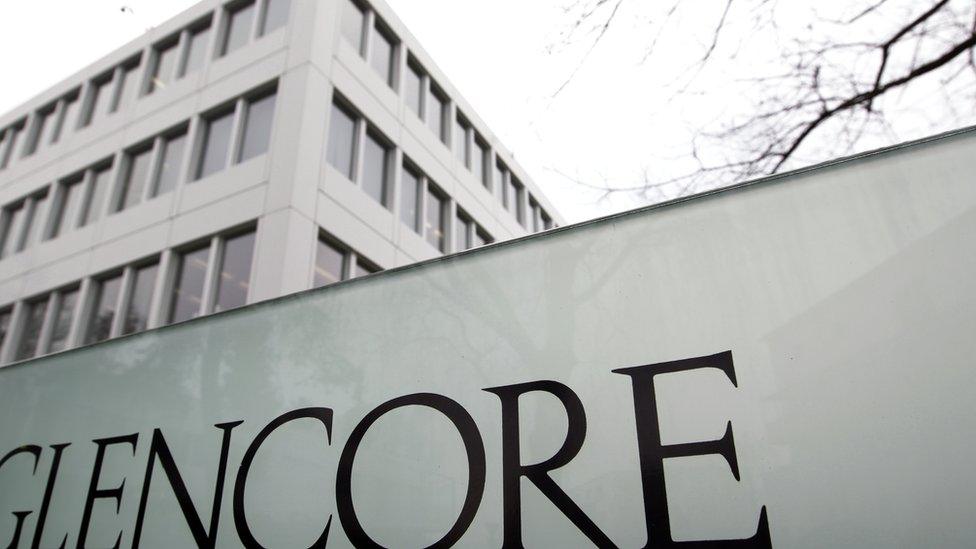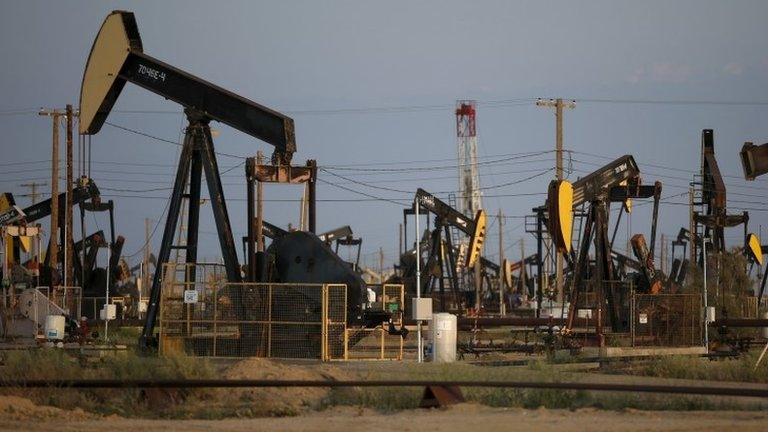Glencore promises to cut debt and raise cash
- Published

Glecnore - action plan to cut debt, raise cash and suspend older mines
Commodities giant Glencore plans to reduce its $30bn (£19.8bn) debt pile, raise cash on the stock markets and suspend some African copper output.
Glencore said it aimed to reduce its net debt "to the low US$20bns by the end of 2016".
It said it would sell assets and raise $2.5bn in a new share issue.
The firm also said it would suspend some of its copper production operations in Zambia and the Democratic Republic of Congo for 18 months.
It estimated that the suspension would remove 400,000 tonnes of copper from the global market, equivalent to about a quarter of the firm's total copper production.
It has also stopped dividend payments to shareholders until further notice.
Glencore shares were suspended in Hong Kong ahead of the announcement but closed up by 7% in London trade. Last week they had been trading some 60% below their level at the start of the year.
In August, the firm reported a first-half loss of $676m after being hit by falling oil and metal prices.
The Switzerland-based firm also said at the time, external that investment spending in 2016 was expected to be lower than this year.
Suspension
Glencore says the Zambian and Congo mines due to be suspended are both decades old with production costs close to double those of its more modern Congo mines.
The suspension will allow Glencore to upgrade and expand the operations to reduce costs.
Prices for copper and coal - two of the company's most important products - have fallen to six-year lows in recent times.
Ratings agency Standard & Poor's said last week it might lower Glencore's credit rating if the giant did not reduce its debt.
"We would likely lower the rating on Glencore if we perceive reduced commitment to defending the rating or if commodity prices persist below our price deck or fall further, absent material offsetting factors," the ratings agency said at the time.
Glencore's chief executive Ivan Glasenberg and chief financial officer Steven Kalmin said in a statement on Monday the measures would not affect their core business activities.
They also said the measures had "been designed to sensibly accelerate the deleveraging of our balance sheet [and] maximise future cash-flow generation in the current weak commodity price environment" .
- Published19 August 2015

- Published10 July 2015
.jpg)
- Published27 April 2015

- Published19 January 2015
